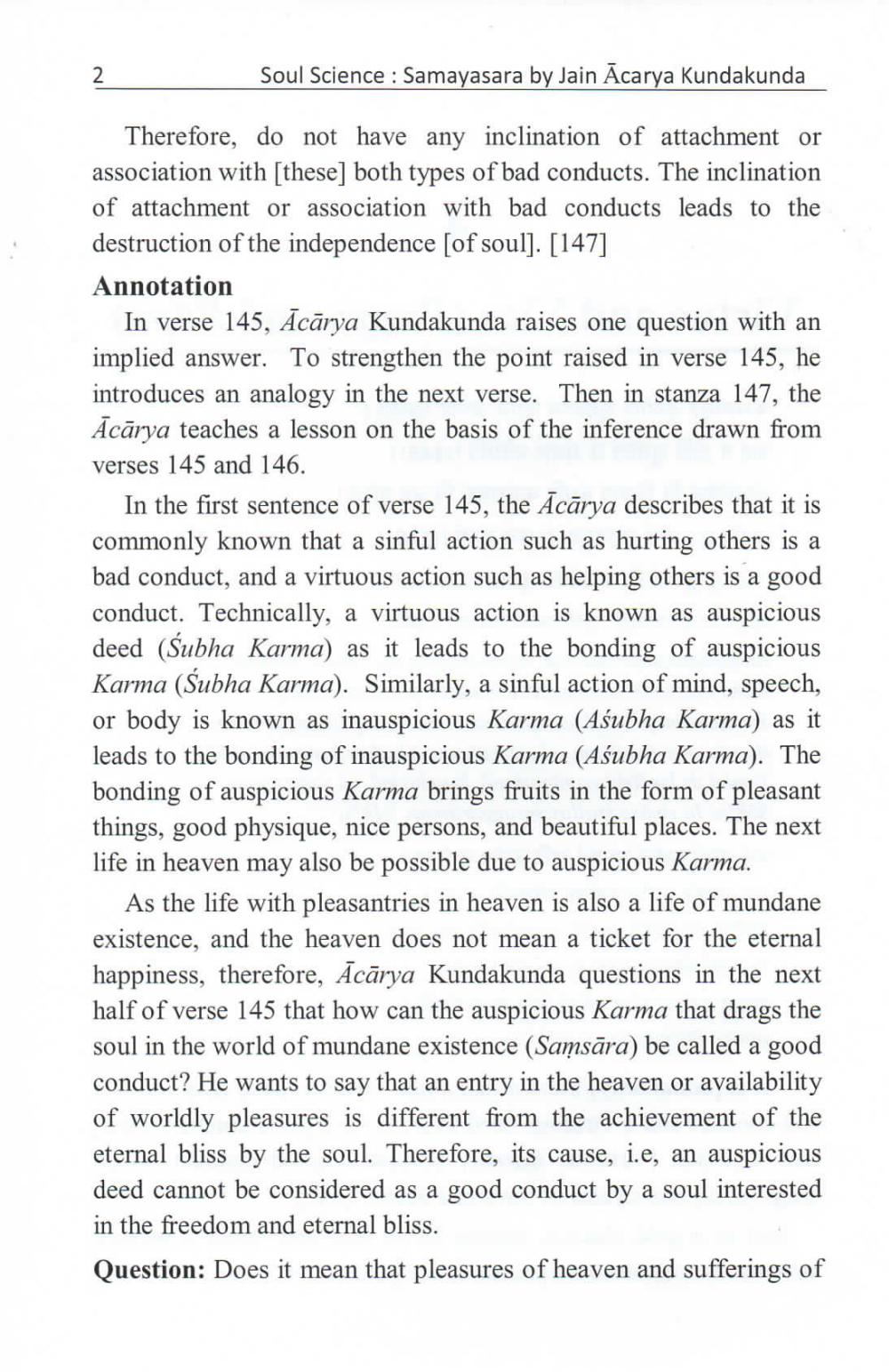________________
Soul Science : Samayasara by Jain Acarya Kundakunda
Therefore, do not have any inclination of attachment or association with [these] both types of bad conducts. The inclination of attachment or association with bad conducts leads to the destruction of the independence [of soul]. [147] Annotation
In verse 145, Ācārya Kundakunda raises one question with an implied answer. To strengthen the point raised in verse 145, he introduces an analogy in the next verse. Then in stanza 147, the Ācārya teaches a lesson on the basis of the inference drawn from verses 145 and 146.
In the first sentence of verse 145, the Ācārya describes that it is commonly known that a sinful action such as hurting others is a bad conduct, and a virtuous action such as helping others is a good conduct. Technically, a virtuous action is known as auspicious deed (Subha Karma) as it leads to the bonding of auspicious Karma (Subha Karma). Similarly, a sinful action of mind, speech, or body is known as inauspicious Karma (Aśubha Karma) as it leads to the bonding of inauspicious Karma (Aśubha Karma). The bonding of auspicious Karma brings fruits in the form of pleasant things, good physique, nice persons, and beautiful places. The next life in heaven may also be possible due to auspicious Karma.
As the life with pleasantries in heaven is also a life of mundane existence, and the heaven does not mean a ticket for the eternal happiness, therefore, Ācārya Kundakunda questions in the next half of verse 145 that how can the auspicious Karma that drags the soul in the world of mundane existence (Samsāra) be called a good conduct? He wants to say that an entry in the heaven or availability of worldly pleasures is different from the achievement of the eternal bliss by the soul. Therefore, its cause, i.e, an auspicious deed cannot be considered as a good conduct by a soul interested in the freedom and eternal bliss. Question: Does it mean that pleasures of heaven and sufferings of




